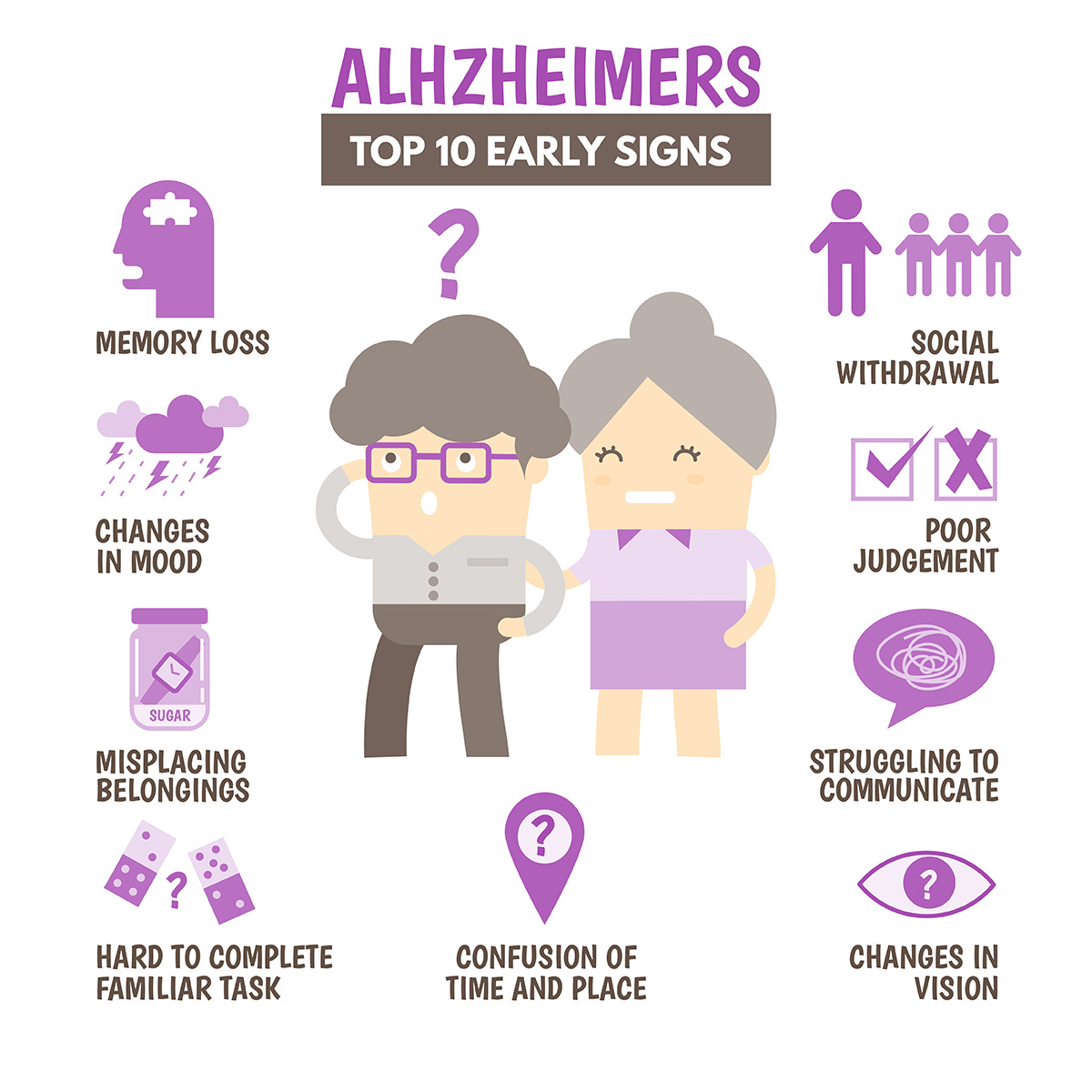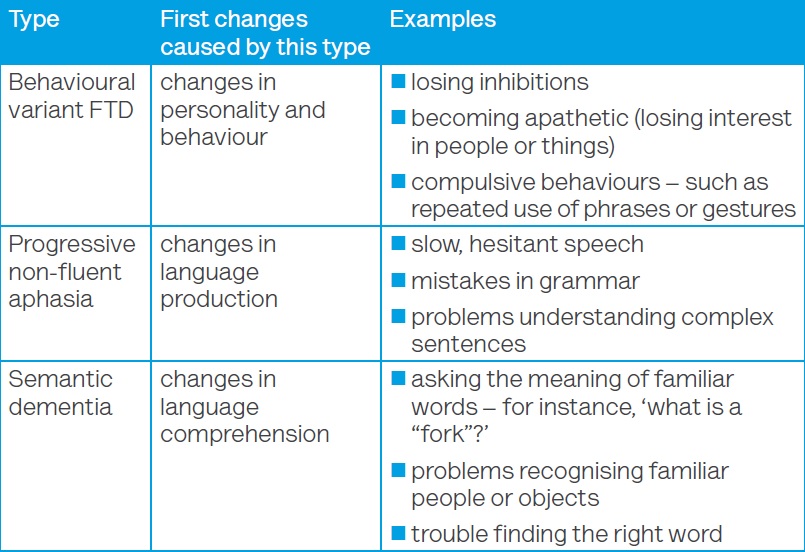Emotional and Behavioral Changes in Frontotemporal Dementia Patients
Understanding the Influence of Dementia on Daily Life and Caregiving
Mental deterioration impacts day-to-day life in profound means, affecting not just those identified but likewise their caretakers. As cognitive decline proceeds, you may see modifications in interaction and routine that obstacle both parties. Recognizing these shifts is necessary for maintaining self-respect and engagement. Just how do you adapt your caregiving methods to support somebody traversing this facility journey? The responses could surprise you as we discover the nuances of this experience.
The Stages of Mental Deterioration and Their Results on Daily Life
As you navigate the journey of mental deterioration, recognizing its phases can significantly affect just how you take care of daily life. Dementia usually advances via 3 major phases: early, center, and late. In the onset, you could see periodic memory gaps or trouble locating the right words. This can lead to disappointment, however identifying these indicators early aids you adjust your regular and look for assistance.
During the center phase, you'll experience much more visible cognitive decline. Daily jobs could end up being difficult, and maintaining your independence might need modifications. Utilizing reminders and streamlining your atmosphere can help.
In the late stage, people commonly need significant aid with day-to-day tasks. Planning for treatment ends up being vital, concentrating on convenience and top quality of life. By comprehending these stages, you're far better furnished to respond proactively, guaranteeing you or your enjoyed one can navigate the challenges with self-respect and grace.

Modifications in Communication and Social Interaction
Just how do changes in interaction impact your daily communications as dementia advances? As mental deterioration developments, you may see that simple conversations come to be tough. Words might escape you, or you might struggle to find the right phrases. This can lead to disappointment for both you and your loved ones. Nonverbal cues, like motions or faces, end up being progressively essential.
You may locate it much easier to connect via these ways rather than relying only on spoken language. Listening abilities can likewise change; you may find it tougher to comply with conversations or bear in mind what was just claimed (Vascular Dementia). This can result in misconceptions or feelings of seclusion
Motivating patience and producing an encouraging environment can assist. Taking part in activities that promote link, like music or art, can boost social communications. Remember, preserving partnerships is still feasible; it's practically adjusting to new methods of connecting.
Influence On Daily Routines and Activities
While navigating day-to-day routines, you'll likely discover that jobs you as soon as completed effortlessly ended up being a lot more tough as dementia progresses. Basic tasks like food preparation, clothing, and even bathing may require more effort and time. You could locate on your own forgetting steps in acquainted regimens or battling to remember where you placed items. This can lead to stress not simply for you, yet additionally for those around you.
Adapting your setting can aid; for instance, labeling things or utilizing checklists can streamline tasks. Engaging in recurring, organized activities can additionally offer convenience and a sense of achievement. Remember, it's all right to ask for assistance.
Behavior and emotional Obstacles
Steering via daily regimens can bring about not simply practical obstacles, but behavioral and likewise psychological ones. You may see modifications in state of mind, such as enhanced anxiousness or irritation, which can stem from confusion or trouble in completing tasks. As you browse these moments, it is essential to acknowledge that your enjoyed one may share their sensations via actions like anxiety or withdrawal.
These psychological reactions can be uncertain and might occur without warning, leaving you both feeling bewildered. You may locate that acquainted environments or routines can aid reduce stress and anxiety, yet keeping patience becomes considerable. It is essential to confirm their sensations, even if you don't completely comprehend them.
The Duty of Caregivers in Sustaining People With Mental Deterioration
As a caregiver, you play a vital duty in giving psychological assistance for people with mental deterioration. Developing daily care routines can create a sense of stability and comfort, helping to relieve their stress and anxiety. By comprehending their requirements and utilizing reliable approaches, you can significantly enhance their lifestyle.
Emotional Support Strategies
When taking care of a person with mental deterioration, comprehending the emotional landscape is essential for providing effective support. You'll frequently find that patience and compassion go a lengthy means. Validate their feelings; if they express complication or frustration, acknowledge it without rejecting their emotions. Basic motions, like holding their hand or keeping eye contact, can develop a complacency. Try to engage in tasks that they appreciate, as this can trigger delight and link. Remember to communicate plainly and slowly, using a tranquil tone. Urge expression with music or art, which can work as an effective electrical outlet. Eventually, don't neglect to care for your own emotional demands; seeking support for on your own can enhance your click site capacity to take care of them.
Daily Care Routines
Establishing day-to-day treatment routines is necessary for offering stability and convenience to people with dementia, as these regimens can help minimize complication and anxiety. You can begin by laying out a consistent routine for dishes, activities, and rest. This predictability aids your enjoyed one feel much more safe and secure and engaged.
Integrate acquainted jobs, like folding laundry or watering plants, which can evoke positive memories and cultivate a feeling of achievement. Usage aesthetic signs, such as checklists or calendars, to assist them via the day.
Be flexible, though; adapt regimens as required based upon their state of mind or energy levels. Fall Risk. Remember, your persistence and understanding are crucial in steering their transforming needs, ensuring they feel supported and valued throughout their day-to-day live
Developing a Safe and Comfy Living Setting
Developing a comfortable and safe living environment is essential for individuals with dementia. You'll want to make home safety modifications that reduce risks and guarantee experience to supply a feeling of convenience. By concentrating on these facets, you can aid develop an area that sustains both security and wellness.
Home Security Adjustments
As you browse the difficulties of mental deterioration, making home safety adjustments can significantly improve comfort and safety. Begin by eliminating tripping risks like rugs and mess, ensuring pathways are clear. Install grab bars in bathrooms and non-slip floor coverings in the shower to avoid falls. Consider making use of brighter illumination and night lights to boost exposure, especially throughout nighttime. Tag essential locations, such as the shower room and kitchen area, with clear signs to assist with positioning. Secure any type of sharp objects or poisonous materials unreachable. Furthermore, assess your home's alarm systems and locks their website to confirm they're user-friendly and give comfort. These adjustments not only advertise security yet likewise encourage self-reliance, allowing your liked one to feel more comfortable in their setting.
Comfort and Familiarity
After making sure a secure environment with needed alterations, fostering comfort and experience is vital for people with mental deterioration. Start by individualizing their room. Use familiar colors, designs, and pictures that stimulate happy memories. A preferred covering or chair can give a complacency. Keep a consistent regular to help them feel based and lower anxiety. Straightforward, acquainted meals can also develop a comforting environment. Maintain pathways clutter-free and clear to stay clear of complication. Incorporate soft lighting, as brilliant lights can be disorienting. Take into consideration including soothing fragrances, like lavender, to promote leisure. Taking part in acquainted activities, such as paying attention to songs or horticulture, can improve their sense of belonging, making their living atmosphere a true haven.
Methods for Effective Caregiving and Support
While steering the challenges of mental deterioration treatment can feel frustrating, carrying out effective strategies can greatly boost both the caregiver's and the patient's day-to-day experience. Beginning by establishing a routine; predictability helps in reducing anxiousness for both you and your liked one. Use clear, simple interaction-- straight questions and brief sentences can prevent complication.

Do not neglect to deal with yourself; schedule breaks and attach with assistance groups. Sharing experiences with others in comparable circumstances can offer important insights and psychological relief.
Lastly, remain person and adaptable. Dementia can bring unpredictable adjustments, so adapting your approach is essential. By using these techniques, you can foster a much more positive setting that benefits both you and your enjoyed one.
Often Asked Inquiries

What Are the Various Sorts Of Mental Deterioration?
You'll discover a number of kinds of dementia, including Alzheimer's, vascular dementia, Lewy body mental deterioration, and frontotemporal mental deterioration. Each kind impacts memory and cognitive function in different ways, so comprehending the differences is vital for appropriate diagnosis and care.
Exactly How Can I Help Someone With Early-Stage Mental Deterioration?
You can aid somebody with early-stage dementia by being client, providing support, and encouraging them to engage in tasks they take pleasure in. Keeping routines regular and preserving open communication can additionally make a considerable difference in their day-to-day live.
Exist Financial Resources Available for Dementia Care?
Yes, there are economic sources offered for dementia treatment. You can explore federal government help programs, nonprofit companies, and insurance coverage options. It's additionally important to speak with local firms for particular resources customized to your situation.
What Lawful Considerations Should Caregivers Know?
As a caregiver, you need to think about power of lawyer, health care proxies, and guardianship regulations. It's necessary to understand the lawful rights and obligations you hold, ensuring your liked one obtains proper care and security.
How Can I Manage Caregiver Tension?
You can this hyperlink handle caregiver anxiety by prioritizing self-care, looking for support from buddies or teams, establishing realistic expectations, taking breaks, and exercising relaxation techniques. Keep in mind, your health matters equally as long as the individual you're looking after.
Understanding the Effect of Mental Deterioration on Daily Life and Caregiving.
As you browse the trip of dementia, understanding its stages can substantially impact exactly how you handle day-to-day life.While maneuvering daily routines, you'll likely discover that jobs you as soon as finished easily become more challenging as dementia advances.Establishing everyday treatment regimens is crucial for providing stability and comfort to individuals with dementia, as these routines can help reduce confusion and anxiety.While navigating the difficulties of dementia care can feel overwhelming, implementing effective strategies can significantly improve both the caregiver's and the client's daily experience.